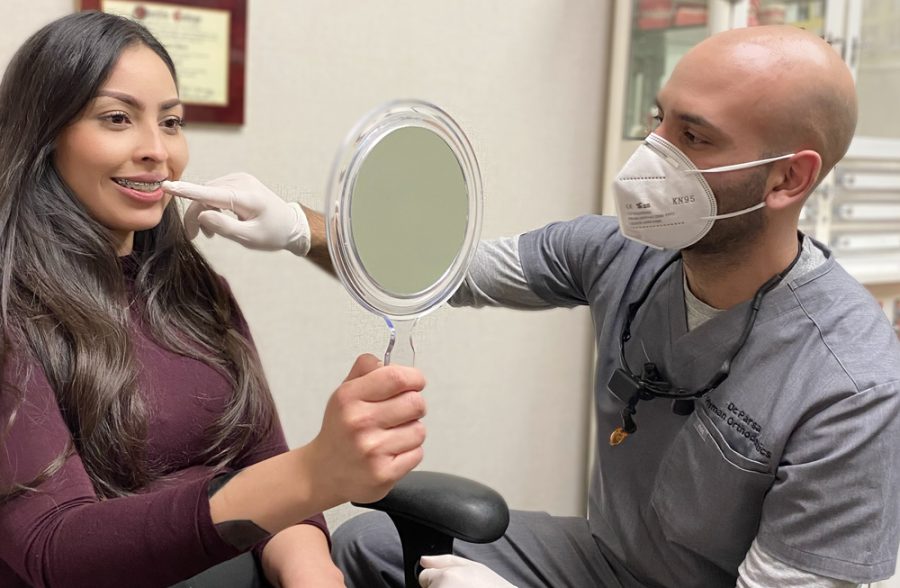What to Expect
Initial Discomfort: When braces are first applied and after adjustments, it’s common to experience some discomfort. This is because the braces are applying pressure to your teeth to move them into their new positions. Typically, this discomfort is most noticeable in the first few days following an adjustment.
Irritation: In addition to pressure-related discomfort, the brackets and wires can cause irritation to the inside of your mouth, including your cheeks, lips, and tongue. This type of irritation usually decreases as your mouth becomes accustomed to the hardware.
Managing Discomfort
1. Over-the-Counter Pain Relievers: Non-prescription pain relief medication, such as ibuprofen or acetaminophen, can be effective in managing pain, especially in the first few days after getting braces or following an adjustment. Always follow the dosage instructions or consult with your orthodontist for recommendations.
2. Oral Anesthetics: Gels or ointments designed for oral use can be applied directly to the affected areas to numb irritation and discomfort caused by the braces rubbing against the inside of your mouth.
3. Soft Foods: Eating soft foods that require minimal chewing can significantly reduce discomfort during the initial adjustment period. Foods like soups, yogurt, and smoothies are excellent choices.
4. Cold Foods and Drinks: Cold items like ice cream, chilled smoothies, or even just ice water can provide relief by numbing the mouth and reducing inflammation.
5. Orthodontic Wax: Using orthodontic wax on the brackets can help prevent and alleviate irritation to the lips and cheeks. Your orthodontist can show you how to apply it properly.
6. Good Oral Hygiene: Keeping your teeth and braces clean can help prevent additional discomfort caused by issues like sores or infections. Brush gently but thoroughly, and consider using tools like interdental brushes and floss threaders.
Long-Term Comfort
While braces can cause temporary discomfort, the pain is manageable with the right strategies and tends to decrease over time as your mouth adjusts. Remember, any discomfort associated with braces is temporary, but the benefits of a straighter smile last a lifetime.
When to Contact Your Orthodontist
If you experience severe pain that isn’t relieved by over-the-counter medications or if the discomfort persists for more than a week after an adjustment, it’s important to contact your orthodontist. They can check to ensure everything is progressing as expected and provide additional solutions to improve your comfort.
Braces pain is a common concern, but it’s manageable with the right approaches and typically diminishes as your mouth adjusts to the braces. By following these tips and maintaining open communication with your orthodontist, you can ensure your orthodontic journey is as comfortable as possible. Remember, the temporary discomfort of braces paves the way to a lifelong smile you can be proud of.

